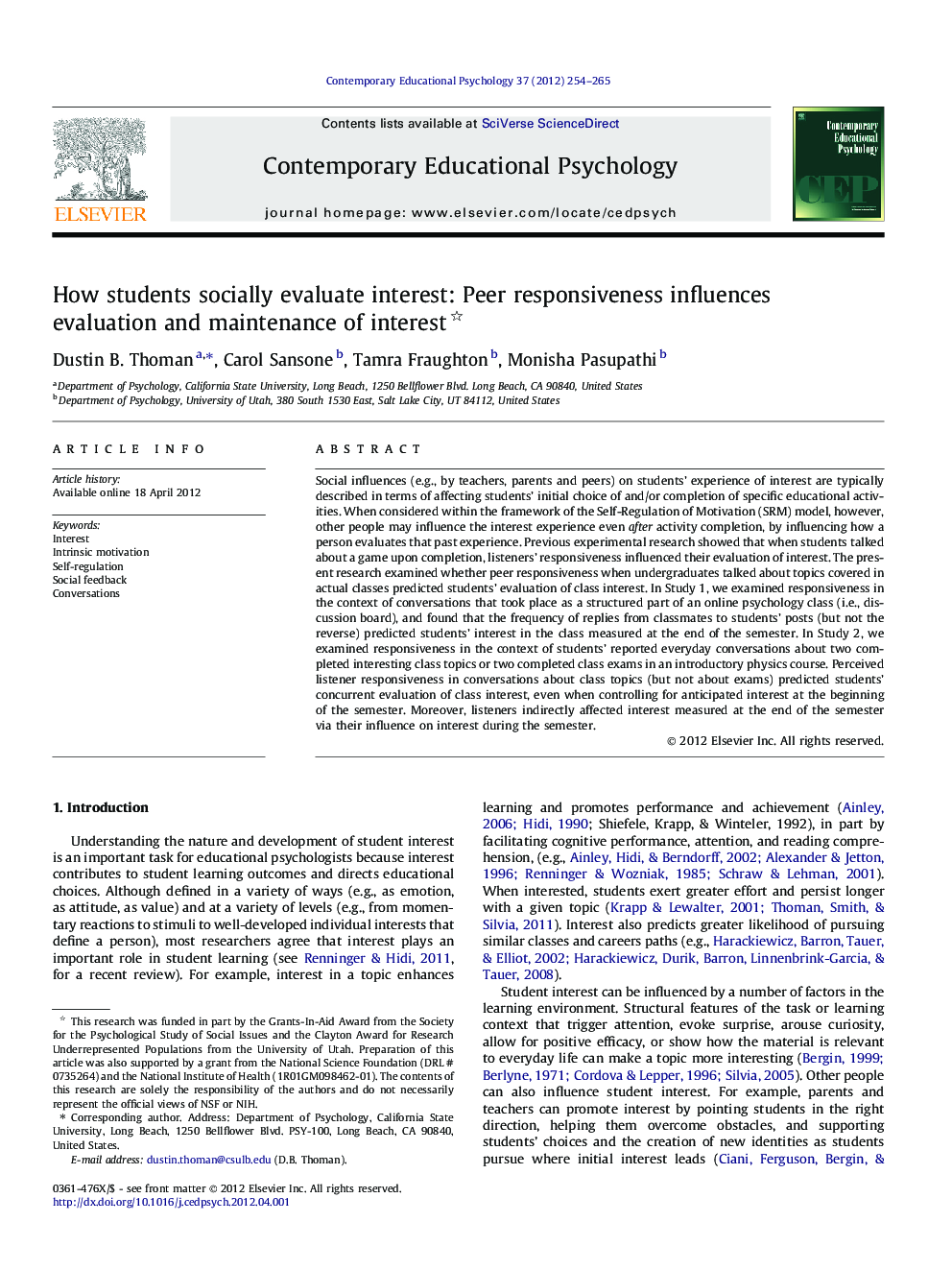| کد مقاله | کد نشریه | سال انتشار | مقاله انگلیسی | نسخه تمام متن |
|---|---|---|---|---|
| 352731 | 618616 | 2012 | 12 صفحه PDF | دانلود رایگان |

Social influences (e.g., by teachers, parents and peers) on students’ experience of interest are typically described in terms of affecting students’ initial choice of and/or completion of specific educational activities. When considered within the framework of the Self-Regulation of Motivation (SRM) model, however, other people may influence the interest experience even after activity completion, by influencing how a person evaluates that past experience. Previous experimental research showed that when students talked about a game upon completion, listeners’ responsiveness influenced their evaluation of interest. The present research examined whether peer responsiveness when undergraduates talked about topics covered in actual classes predicted students’ evaluation of class interest. In Study 1, we examined responsiveness in the context of conversations that took place as a structured part of an online psychology class (i.e., discussion board), and found that the frequency of replies from classmates to students’ posts (but not the reverse) predicted students’ interest in the class measured at the end of the semester. In Study 2, we examined responsiveness in the context of students’ reported everyday conversations about two completed interesting class topics or two completed class exams in an introductory physics course. Perceived listener responsiveness in conversations about class topics (but not about exams) predicted students’ concurrent evaluation of class interest, even when controlling for anticipated interest at the beginning of the semester. Moreover, listeners indirectly affected interest measured at the end of the semester via their influence on interest during the semester.
► Examined social influences on students’ class interest.
► Peer responsiveness in conversations about class topics predicted class interest.
► Effects of peer responsiveness were distinct from agreement.
► Effects of peer responsiveness were found for both in person and online conversations.
► Peer responsiveness affected interest when talking about class topics, but not exams.
Journal: Contemporary Educational Psychology - Volume 37, Issue 4, October 2012, Pages 254–265